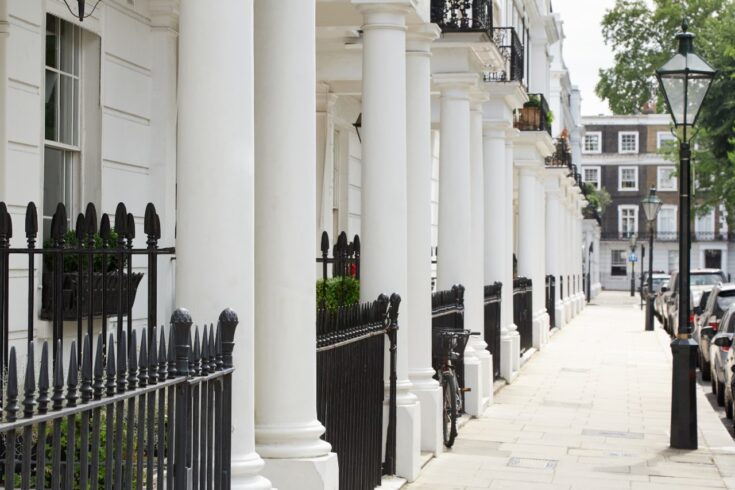The Economic and Social Research Council (ESRC)-funded research into countering ‘kleptocracy’ – corruption among elites within a political system, including laundering assets overseas – is increasing understanding of the impact this activity has on the UK and, crucially, what government and policymakers can do to control it.
Research led by John Heathershaw, Professor of International Relations at the University of Exeter, provided evidence of how money laundering and ‘reputation laundering’ – where elites enhance their reputation through gifts to charities, universities, and political parties – are enabled by British financial, legal and public relations services.
Insights by the team of seven, from Chatham House and the universities of Exeter and Oxford, have informed policy and fed into how the government is reforming the legal system and introducing anti-corruption sanctions. This new approach is helping to counteract the UK’s vulnerability to illegal trade from kleptocratic sources that may be considered a threat to national security.
About the project
Combining detailed analysis of court documents and financials records with fieldwork-based studies into the political economy of armed conflict enabled researchers to ‘follow the money’ from foreign autocracies into countries such as the UK.
Professor Heathershaw explains:
We studied the movement of money out of kleptocratic states and into the financial system. We followed it into property purchases made via unexplained wealth, charitable and political donations, and other services, such as reputation-management companies.
The team used court records to build large datasets of techniques for moving and hiding money, including a database of property purchases in the UK. Their research also helped identify the legal techniques used by some British law firms in court cases focused on suspicious wealth.
Professor Heathershaw says:
Historically, professionals who enable kleptocrats to move or hide their money have not often been prosecuted, which makes the UK’s economy vulnerable to the proceeds of crime.
However, the evidence we have brought to light through our research and our influence on policy has created an opportunity to improve practices and frameworks that will help prevent further economic damage through illicit trade practices.
Impact of the project
The Countering Kleptocracy Project team’s work has supported government policies on economic crime. They identified issues surrounding money and reputation laundering in the UK and highlighted how some professionals are enabling money and reputation laundering.
Creating a shift in policy and law
The team’s research has been used to inform a shift in government policy and shape new laws. In March 2022, the team’s report on Unexplained Wealth Orders (UWOs) was presented in parliament at the invitation of Dame Margaret Hodge MP. It informed the partial reform of UWOs in the Economic Crime Act, which was given royal assent in April 2022. Their research also informed both the Economic Crime Bill and Corporate Transparency Bill currently before Parliament.
Dame Margaret Hodge MP, Chair of the All-Party Parliamentary Group on Anti-Corruption and Responsible Tax, says:
The UK’s Kleptocracy Problem was one of the reports that enabled us to develop our thinking and frame our policies on tackling economic crime. The team’s work also exposed the shortcomings of Unexplained Wealth Orders… and provided our cross-party group with solid evidence to push for change.
Raising awareness of the UK’s vulnerability to authoritarian influence
Prior to the Countering Kleptocracy Project, there had been little research into the impact of illicit finance from kleptocratic states on the UK’s economy. The team’s research highlighted the threats posed by authoritarian influence to the rule of law and national security.
It has positioned the issue as a leading question of public debate. More than half of all uses of the word ‘kleptocracy’ in Parliament since 1800 occurred in the year 2022, often by the team’s contacts in parliament.
Peter Munro from the UK Anti-Corruption Coalition, a group of non-governmental organisations, parliamentarians, lawyers, and academics who collaborate on work on illicit finance, says:
The UK’s Kleptocracy Problem report has been a key source of information for our internal working groups but has also been influential in shifting the dial within the broader UK political discourse.
The team’s work on incumbent elites and the need to implement existing laws has demonstrated the need for better resourcing for law enforcement agencies and is instrumental in our advocacy work.
Informing government about the need for reform
The team’s work has also informed the government’s Economic Crime Plan, 2023-2026. Briefings to the cross-Whitehall Illicit Finance group provided evidence to Treasury, Home Office and Education departments regarding how kleptocracy is a concern for their departments, with recommendations for legal reform and increases in enforcement.
They also provided evidence to the Public Bill Committee on the Higher Education Bill and worked with Jesse Norman MP to table an amendment to ensure universities are more transparent about their donors.
The research has also informed the government’s Ukraine Advisory Group of the limits of British sanctions and the need for legal reform and enforcement to move from freezing assets to seizing and confiscating them.
Find out more
Read The UK’s Kleptocracy Problem report
The research and related knowledge exchange work was funded by ESRC, Global Integrity Anti-Corruption Evidence Programme, Serious Organised Crime-Anti-Corruption Evidence Programme, British Academy, Leverhulme Trust and the Joffe Trust.

